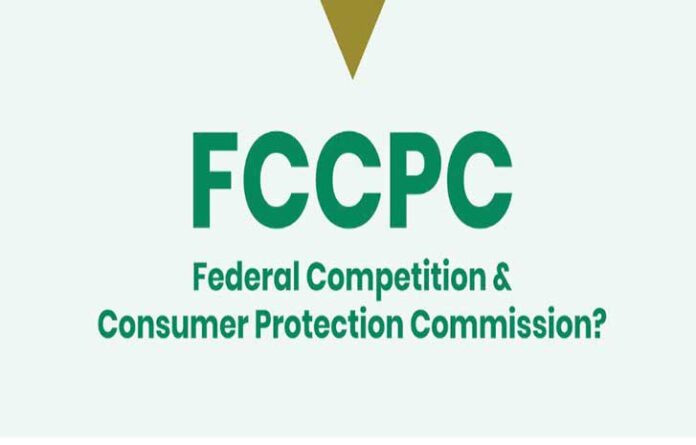Mr Babatunde Irukera, Vice Chairman /Chief Executive Officer of the Federal Competition and Consumer Protection Commission (FCCPC), says the commission is committed to promoting sustainable consumption in Nigeria.
Irukera said this at a one-day stakeholders’ workshop on National Sustainable Consumption and Waste Management in Nigeria on Tuesday in Lagos.
The workshop was organised by FCCPC Taskforce on the implementation of guiding principles on sustainable consumption, to galvanise its operations.
He said to realise this objective, the commission was working on an action plan for sustainable consumption, which would soon be adopted to ensure an environmental-friendly consumption behaviour in the country.
He said the sustainable consumption initiative was borne out a decision reached by stakeholders during the 2020 World Consumer Rights Day.
Irukera said the FCCPC promoted and proposed the adoption of certain guiding principles for sustainable consumption at the annual World Consumer Rights Day of 2020.
The FCCPC boss said agreed sustainable consumption included consumer advocacy and regulatory engagement efforts in collaboration with the food and beverage companies.
“About two years ago, the FCCPC and alliance of food and beverages companies that sell their products using plastics came together at the consumers’ right day.
“They decided that we should set up a taskforce that will address the question of sustainable consumption. They have being working for the past two years and they have come up with an action plan,” he said.
He noted that the advocacy aspect involved engaging consumers more on handling waste generally, particularly plastic, which does not decompose as well as managing it in a manner that promotes recycling and saves the environment.
Irukera also said the other aspect entailed getting the companies to come together to adopt self-regulatory principles.
“The level of plastic waste management in the country is high and we have a big problem with that.
“Although, not as high as in other parts of the world, but again we are talking about a particular waste here, which is plastic and it is non-degradable.
“We also need to find more cost effective ways of distributing products and at the same time get consumers to be sensitive to their own habits,” he said.
According to him, since the taskforce came into existence, what it has done is mostly to come out with a plan.
“In the interim, while they were coming up with a plan, we have done some advocacy work. We see that recycling has become prevalent in the country.
“We don’t take credit for that, but we have contributed to that process.
“You must have seen in the news that we are trying to address producing multiple products in sachets, so that we can make more progress and which has contributed to addressing this in a robust manner,” he added.
Mr Christ Wulff-Caesar, Acting Chairman of the FCCPC Sustainable Consumption Taskforce, said the action plan would be for the next five to 10 years.
He said the action plan would allow manufacturers, consumers, civil society groups, recyclers, all to work within a framework that ensured sustainable process, especially with emphasis on disposing plastic waste.
According to him, Nigerians should be responsible in a way to ensure sustainability of the environment.
“In order to ensure sustainable consumption, we need to change our behaviour on what we do as consumers, manufacturers, recyclers and civil society groups.
“First of all, as a taskforce, our mandate is to evaluate policies in place and available data, knowing the gaps we need to close, which a committee is looking into; so that we can change the legislation and behaviour of a society.
“It is important to know what the problem we are dealing with is. But at the end of the day, the next phase of the taskforce is to communicate to the public the ideals and what is required in terms of sustainable consumption,” said Wulff-Caesar.
Also, Agharese Onaghise, Executive Secretary of Food and Beverage Recycle Alliance, said members supported the operations in waste management value chain, enforced collection and recovery into productive use.
Onaghise said members also ensured community engagement, education and awareness, which the group continued to promote.
She said, “It’s very critical for use in Nigeria to promote behavioural change for people to understand that the packaging material can be collected in an effective way so that it can be recycled effectively.
“Lastly, we also support policy drive dialogue. When it comes to waste management in the country; we need to implement an integrated approach.
“This is because we know that a lot of us also consume products and these products have packaging materials. How do we dispose them?
“If we segregate at the source, it would go a long way in ensuring an effective collective system so that effectively we can recycle and also manage the waste that comes out of the product.”
The UNIDO Regional Director, Mr. Jean Bakole, commended FCCPC for constructing the taskforce to come up with a framework for sustainable consumption and Waste Management with a focus on plastic waste in particular.
Bankole was represented by UNIDO’s Private Sector development expert, Mr. Mustapha Alhaji.
The key stakeholders at the workshop are FCCPC, Standards Organisation of Nigeria (SON), National Environmental Standards and Regulations Enforcement Agency (NESREA) and Federal Ministry of Health.
Others include Federal Ministry of Environment, Civil Society Organisations and industry, represented by Food and Beverage Recycling Alliance; all adopted and committed to the principles.




